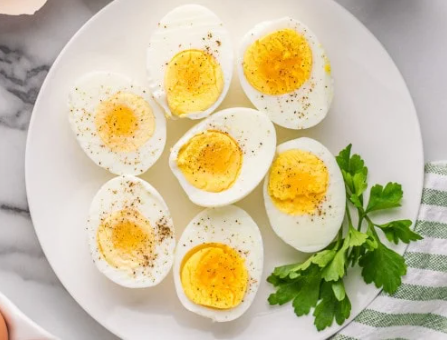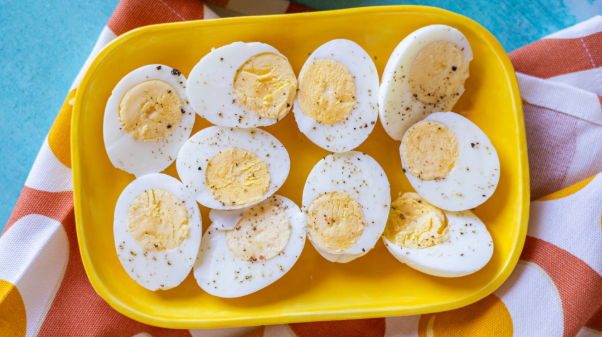How to Cook Hard Boiled Eggs is one of the simplest kitchen skills you can master, yet it’s surprising how many people struggle to get it just right. The perfect hard boiled egg has a firm yet tender white and a creamy yellow yolk that’s fully set without being dry or chalky. Whether you’re making them for breakfast, a snack, salads, or meal prep, this guide will ensure you nail it every single time.
Hard boiled eggs are a nutrient-rich food, loaded with protein, vitamins, and minerals. They’re versatile, easy to store, and can be enjoyed hot or cold. But to get them perfect, timing and technique matter.
Why Perfect Timing Matters
Overcooked eggs can have a greenish ring around the yolk and a rubbery texture, while undercooked eggs won’t peel easily and might be unsafe to eat. The key is controlling your boiling time and cooling process.
Ingredients You’ll Need
- Large eggs (as many as you want to cook)
- Water (enough to cover the eggs by 1–2 inches)
- Ice (for cooling)
- Salt (optional, helps prevent cracking)
Step-by-Step: How to Cook Hard Boiled Eggs

1. Place Eggs in a Pot
Arrange your eggs in a single layer at the bottom of a saucepan. This prevents them from cracking during cooking.
2. Add Water
Pour in enough cold water to cover the eggs by about an inch or two. Starting with cold water helps heat them evenly.
3. Add Salt (Optional)
A pinch of salt can help keep shells from cracking and make peeling easier later.
4. Heat to Boil
Place the pot on the stove over medium-high heat and bring it to a rolling boil.
5. Time the Cooking
Once the water reaches a boil, reduce the heat to low and start your timer:
- Soft-Boiled: 6–7 minutes
- Medium-Boiled: 8–9 minutes
- Hard-Boiled: 10–12 minutes
6. Cool Immediately
When the timer goes off, transfer the eggs to a bowl of ice water. Let them sit for at least 5 minutes. This stops cooking and makes peeling easier.
7. Peel and Enjoy
Gently tap the egg on a hard surface, roll it to crack the shell, and peel starting from the wider end where the air pocket is.
Tips for the Best Hard Boiled Eggs

- Use eggs that are at least a week old for easier peeling.
- Always cool eggs quickly to avoid overcooking.
- Store boiled eggs in the fridge for up to 7 days.
- For batch cooking, label your container with the cooking date.
Read also:-Tofu Scramble Recipe – A Healthy Vegan Alternative to Scrambled Eggs
FAQs
Q1: Can I boil eggs straight from the fridge?
Yes, but they may crack more easily. Starting with room-temperature eggs can reduce cracking.
Q2: Why do my yolks turn green?
This happens when eggs are overcooked or not cooled quickly enough. It’s harmless but can affect texture.
Q3: How can I make peeling easier?
Older eggs peel more easily. Cooling them in ice water also helps loosen the shell.
Q4: Can I reheat hard boiled eggs?
Yes. Place them in hot water for a few minutes or microwave them in short bursts after removing the shell.
Q5: Do I need to store boiled eggs in their shells?
It’s best to keep them in their shells until you’re ready to eat. This keeps them fresher.
Final Thought
Cooking hard boiled eggs might seem like one of the easiest kitchen tasks, but in reality, the small details can completely change the results. The right timing ensures you avoid undercooked yolks or that unpleasant green ring, while proper cooling makes peeling smooth and hassle-free. With just a little care in boiling, resting, and peeling, you can enjoy perfectly cooked eggs every single time. They’re not only great for a quick breakfast or a protein-packed snack, but also an essential addition to salads, sandwiches, lunch boxes, and countless recipes around the world.

